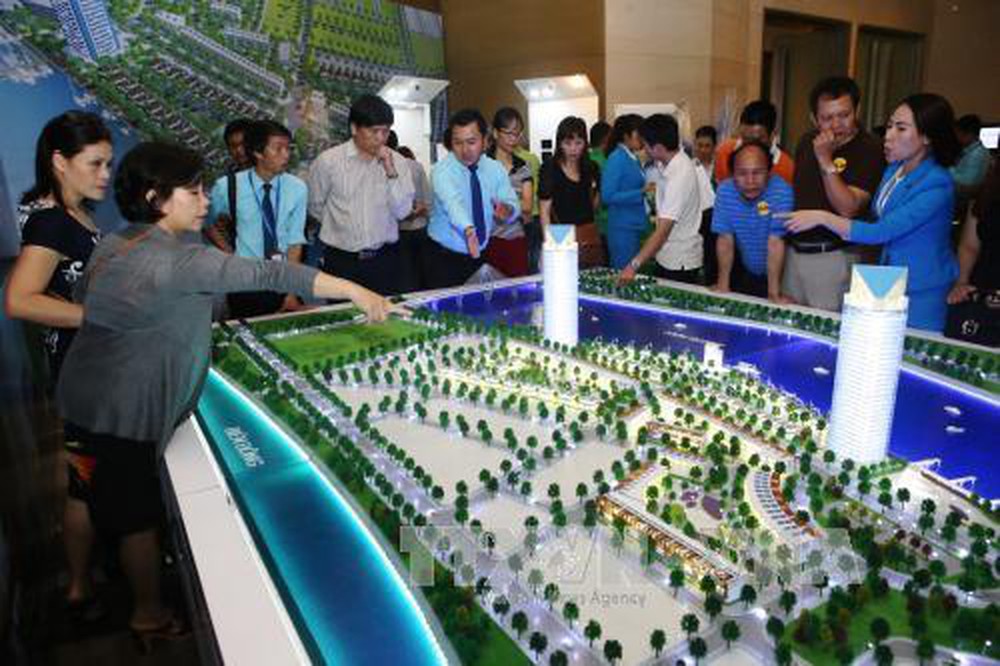
Customers examine a model of the Marina Complex urban area, located on the riverside of Han River in Da Nang City, invested by Da Nang Marina Company Limited. (Photo: VNA)
Khoi said there were unlikely to be bubbles in the property market this year because the Government had gained more experience in management and supervision.
Vice Chairman of the Vietnam Real Estate Association (VNREA) Nguyen Manh Ha said the property market has been stagnant in the first months of the year, especially in Hanoi and Ho Chi Minh City.
Supply on the real estate market in Hanoi in the period was reduced by 25 percent from the same period last year, while HCM City saw a year-on-year decrease of more than 50 percent.
The main reason for the declines was that big property projects in the two cities were sold off in the last quarter of 2018. A slowdown in the approval of new projects in HCM City, together with tightening credit policies, also contributed.
“Some have said the real estate market would decline this year, but I think 2018 and early 2019 have showed fairly stable development," Ha said.
There were 175,000 property products provided to the market last year, 20 percent more than in the previous year. The total number of successful transactions was 113,000.
Experts agreed there would not be a downward trend this year because the Government can draw on its experience from past crises.
Le Xuan Nghia, former vice chairman of the National Financial Supervision Committee, said there would be a huge shift of capital from the stock market to the real estate market, which would likely last until 2021 and potentially until 2023. During the period, the market will show strong development and could be at risk of forming a bubble.
Economist Vo Tri Thanh said rumours had spread quickly about development plans, causing price inflation in some areas. The market needed more transparency to limit uninformed speculation and reduce risks for home buyers.
Ha said the market would continue to be affected by macroeconomic factors, credit policies and the global growth rate.
Credit scale for the market has been gradually reduced since 2016, especially in the last quarter of 2018. The State Bank of Vietnam has sought feedback on a draft that would place stricter controls on credit flowing into the real estate market.
The draft would set a lower maximum level that banks could use to give long- and medium-term loans, which would have a big effect on the property market.
Ha said there were still positive signs for the market such as high demand in big urban areas.
The tightening of credit policies would establish a new investment trend by attracting capital for resorts, industrial estates and offices in some localities.


















